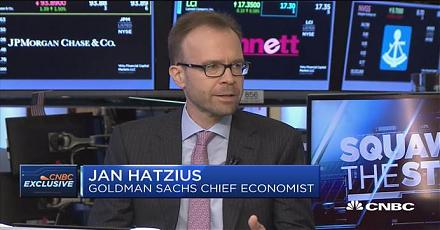

2023-11-07 11:31:00 Tue ET
stock market federal reserve monetary policy treasury fiscal policy deficit debt technology covid-19 employment inflation global macro outlook interest rate fiscal stimulus economic growth central bank fomc capital global financial cycle gdp output
Joel Mokyr (2018)
A culture of growth: the origins of the modern economy
Why is our modern society capable of both cumulative technological progress and innovation? Joel Mokyr suggests that modern economic growth tends to arise form a pervasive change in cultural beliefs. This cultural change occurred gradually over the seventeenth and eighteenth centuries. A new culture of economic growth arose from the intellectual elite transnational community that adopted new open attitudes toward both the creation and diffusion of knowledge. This new culture set the solid foundation for the ethos of modern science. Mokyr presents his historical analysis of how this culture helps explain modern economic growth, technological progress, and innovation in our world economy nowadays. We consider the ripple effects of culture, geography, history, and inclusive institutions on modern economic growth. This broader view complements the macro worldview of our modern economy.
Modern economic growth is quite historically impressive. Before 1800, no society had ever experienced maximum sustainable employment and economic growth in productivity, income per capita, and material welfare over the past 300 years. Why are we so much richer than our ancestors?
Earlier economic explanations of modern growth focus on the most visible feature: the accumulation of physical capital in the form of new machines, railroads, capital goods, and so on. Later, new models of economic growth include new investment in human capital in the form of educational attainment and high-skill development. However, many economic historians and macro economists now agree that neither capital accumulation nor education alone can explain modern economic growth. In practice, technological progress prevails at the center of modern macro economic development. Faster growth of total factor productivity arises from the continuous iterative improvements in new technological advances.
Before the Industrial Revolution, technological improvements were glacially slow. The positive effect of new technology on national income per capita was ultimately offset by population growth. The pre-modern world was thus stuck in a Malthusian trap (Galor, 2011). Over the last 2 centuries, a spectacular cascade of innovations has continued to raise productivity, technological progress, and income per capita. This great technological enrichment has generated long prevalent improvements in the material aspects of the lives of all of its members in our global human society (Lucas, 2002, pp.109; McCloskey, 2016).
If we want to better understand modern economic development, we must ask why we now live in a world with so many cumulative technological innovations. Mokyr argues that maximum sustainable technological progress arose from a change in cultural beliefs about both the creation and diffusion of knowledge. Mokyr focuses on this new open attitude toward our nature and our ability to harness science to our material needs (Mokyr, 2018, pp.14). This cultural transformation has gradually occurred within a small influential elite group that shared new habits of both mind and communication. The Republic of Letters and successors followed the ethos of modern science: knowledge should be universal but not specific to a single group; and knowledge must be freely available in the common domain through continuous skeptical search by scientists who systematically verify their results with equally skeptical peers (Merton, 1973).
This elite community shared 2 fundamental beliefs. First, we can understand how the natural world works in practice. Second, we can and should use this knowledge to improve human welfare and production. Human knowledge and power meet in one. From time to time, the cause leads to the effect. Scientific researchers should command nature by obeying her (Bacon, 1620). The source of human power over nature is deep causal knowledge of natural rules. An objective reality follows these natural rules independently of human wishes. By understanding and obeying these rules of nature, humans can control the world for their own goals and self-interests. For example, humans can fly not because the Wright brothers negated or violated the law of gravity and all the other constraints of physics, but because the Wright brothers commanded those natural rules by obeying them in a novel and creative way. This Baconian belief in the practical power of scientific knowledge has been crucial for the long-term development of new technology.
In the absence of deeper knowledge of natural rules, technological progress would have eventually slowed down. Knowing why new techniques work well in practice allows continuous iterative improvements that would have been impossible if some disruptive innovators had to rely only on imitation and trial and error. In a cultural view, ideas are fundamental causes of economic development. Economic growth often depends on what people believe in due course. This cause-effect chain tends to persist over time. The interplay of both cultural beliefs and institutional changes can often result in the gradual formation of an influential community of intellectual disruptive innovators. This conceptual nexus links the Mokyr historical analysis to the broader debate on the important rule of culture in the economic science.
In the past 200 years, China and Europe followed very different intellectual paths with respect to the rise of open science. A major cultural difference was that China paradoxically lacked a free and open unifying coordination mechanism such as the competitive market for new ideas (Mokyr, 2018, pp.318). In contrast, the European capitalist market for new ideas worked well enough to allow new entrants to often challenge incumbents. What made possible successful cultural scientists such as Newton and Darwin was that the European capitalist market for new ideas was not only contestable but also open to continuous iterative improvements over time. In due course, these European scientists increasingly led intellectual sacred cows to the slaughterhouse of evidence (Mokyr, 2018, pp.319).
Mokyr raises 3 relevant questions about the culture of economic growth. How can we use the culture of economic growth in our profession? How can culture explain modern economic growth? Is this culture of economic growth likely to persist in the future? Mokyr delves into these important and relevant questions about the culture of economic growth.
We can view the normative concept of culture as human development of the mind by education. We can extend the culture of economic growth to encompass most traits that humans transmit through imitation across generations independently of their quality. Voltaire (1756) used the term culture to mean the customs of different populations, so that different cultures produced different fruits. The wider concept of culture is the sum of ways of life built by people. These people can transmit the culture of economic growth from one generation to the next.
Culture refers to the set of beliefs, values, and preferences that people can socially (not genetically) transmit to some subset of human society (Mokyr, 2018, pp.8). In fact, Mokyr applies this specific concept of culture for better understanding modern economic growth. The study of cultural transmission relates to the growing field of the economic science in the wider context of social interactions. Instead of directly affecting comparative performance, cultural and historical differences may create barriers to communication and exchange across populations. People who tend to be historically and linguistically closer to one another may be more likely to adopt specific cultural and institutional innovations through social influence.
Mokyr places the coordination mechanism of cultural transmission at the center of his narrative story. Cultural beliefs are not immutable for life, and a matter of choice is crucial in this analysis of the culture of economic growth. People tend to deviate from their default reference point. New cultural features are the main variables that allow for dramatic cultural changes (Mokyr, 2018, pp.36).
This main theme resonates with the modern neoclassical economic growth model by Nobel Laureate Robert Solow. The Solow-Swan model allows the determinants of economic growth to be due to technical progress and some increases in inputs such as labor and capital. Subsequent empirical work by Mankiw, Romer, and Weil (1992) shows that at least one third of total GDP output per capita arises from each of the 3 baseline inputs such as productive labor, physical capital investment, and human capital accumulation. Solow (1957) estimates that almost 80% of U.S. GDP economic growth per worker would be due to technical progress. In the core Solow model, an increase in the population growth raises the growth rate of total output, but has no permanent effect on the growth rate of per capita output. An increase in the population growth rate would help reduce the steady-state level of per capita output. In a positive light, the Mokyr main thesis of culture accords with the Solow economic growth theory.
The identifiable purely economic factors cannot account for the difference between productivity growth in Britain, Germany, and Sweden etc (Solow, 1970, pp.103). It is a fair problem in social science to measure the other social forces that operate on the level of output per capita as well as the growth of output per capita (Solow, 1970, pp.103-105). Solow indicates his high hopes that the social sciences would become interdisciplinary in a practical way (Solow, 1970, pp.101-102). In this inter-disciplinary view, the new Mokyr culture can help explain modern economic growth in addition to geography, history, and inclusive institutions. Solow concludes with his eloquent statement of the Baconian ethos that upholds a scientific approach to the objective reality. We can attain practical knowledge to improve human welfare. In both the social and physical worlds, we can only command nature if we choose to obey her. Solow serves as a cultural heir of the Baconian beliefs and values that persist at the center of the Mokyr narrative thesis about the recent rise of economic growth in the modern world. Only a specific change in cultural beliefs about nature and both the creation and diffusion of knowledge satisfactorily explain why modern economic growth happened in America, Britain, Canada, and Europe etc (but not in China, India, and many other parts of Eurasia).
In his book Guns, Germs, and Steel, Jared Diamond (1997) explains why Eurasian and North African civilizations seem to have survived in due course. At the same time, Diamond argues against the idea that Eurasian hegemony results from any specific form of Eurasian moral, intellectual, or inherent genetic superiority. From a practical viewpoint, Diamond argues that the substantial gaps in both power and technology between human societies tend to arise from environmental differences. Positive feedback loops can often help amplify these environmental differences. While several cultural or genetic differences seem to have favored Eurasians (e.g. both written language and the important development of health care resistance to endemic diseases among Eurasians), Diamond suggests that these major internal advantages often result from the broader influence of geography on cultures and societies. For instance, geography allows both world trade and commerce between different cultures. These central economic interactions cannot be found in Eurasian genomes. In essence, Diamond advocates that structural changes in the external environment can often help shape human interactions worldwide through cultures and beliefs across major civilizations in global economic history.
Another set of critical preconditions pertains to inclusive institutions in association with the protection of property rights, contract enforcement, and open participation in political decisions (North, 1981, 1990; Acemoglu, Johnson, and Robinson, 2005). Daron Acemoglu, Simon Johnson, and James Robinson (2001 and 2002) present empirical analysis of the robust nexus between colonialism and subsequent poor social infrastructure (and thus subpar economic growth). In their institutional view, geographic differences between (sub)tropical and temperate areas at the time of colonization have caused Europeans to colonize with both extractive and inclusive institutions. The different strategies of colonization affect subsequent institutional development. For this reason, the chosen establishment of inclusive or extractive institutions serves as a crucial source of global differences in social infrastructure and economic growth nowadays.
Acemoglu, Johnson, and Robinson (2001) empirically emphasize the geographic disease environment. Europeans face extremely high mortality risks in key tropical areas (particularly from malaria and yellow fever), but the average death rates are substantially lower in temperate regions. In the tropical high-disease environments, European colonizers establish extractive states or authoritarian institutions in order to exploit natural resources from these colonies with little settlement and property protection. In the temperate low-disease environments, European colonizers tend to establish inclusive states or settler colonies with democratic rule of law.
Acemoglu, Johnson, and Robinson (2002) focus on the previous level of economic development on the eve of colonization. In key colonies with dense population and greater institutional development, it proves to be more attractive for Europeans to establish extractive states than inclusive states and settler colonies. This particular colonization strategy leads to the great reversal of fortune that the settler colonies with inclusive institutions tend to experience better economic growth and middle-class income stability (in stark contrast to extractive states). This key empirical fact prevails in the economic comparison of North America versus South America.
As Mokyr argues, the Industrial Revolution cannot seem to have been a response to any major institutional stimulus (Mokyr, 2018, pp.5-6). Inclusive institutions and markets may be a necessary component for sustainable economic growth, but they do not seem to be sufficient. If geography and inclusive institutions are not enough to explain modern economic growth, is culture the cause of the great enrichment? By definition, technological progress is a common cultural phenomenon. In a basic view, the central changes in modern economic growth and technological progress relate to the new belief in the power of humans to better understand nature, as well as the creation and diffusion of scientific knowledge. The intellectual elite group of scholars would share this knowledge within a transnational community (Republic of Letters).
Specifically, the new culture of economic growth evolved as a result of both human choices and social interactions. In this wider context, cultural entrepreneurs came up with new ideas, and many other intellectual scholars adopted their new beliefs and attitudes. Over time, this cultural revolution affected new technology not only directly by changing open attitudes toward the natural world, but also indirectly by creating social rules and habits to support the accumulation and diffusion of useful scientific knowledge. The new social norms included tolerance of heterodox views, rigorous proofs and reproducible experiments, and positive intellectual attitudes toward disclosure and collaboration. As a social method of organizing knowledge, open science and free access to scientific knowledge become new human values (Mokyr, 2018, pp.183). As a consequence, culture and inclusive institutions cannot be alternative explanations for modern economic growth. Instead, cultural beliefs and institutional arrangements co-evolve in due course. Culture forms the primary foundation of inclusive institutions as the former provides the latter with legitimacy (Mokyr, 2018, pp.10). In this respect, the Mokyr main thesis of a culture of modern economic growth serves as a significant contribution to both the interplay and joint evolution of both culture and inclusive institutions from an economic perspective (Greif, 1994, 2006; Tabellini, 2008, 2010; Alesina and Giuliano, 2015).
With an element of contingency, similar circumstances can often result in different economic outcomes. It is often erroneous for economic historians to assume that since what happened did happen it must have been inevitable (McCloskey, 2016, pp.376). As Mokyr advocates, for instance, one would have foreseen the post-war economic success of Japan and Germany by taking account of the new culture of modern economic growth (Landes, 1998, pp.517).
Mokyr delves into the historical and political circumstances that set apart Europe from many other regions of the world. This theme allows the cultural entrepreneurs and disruptive innovators to defeat intellectual conservatism. The decisive collapse of the Roman Empire serves as a good example of how political fragmentation can lead to inter-state military and economic competition in Western Europe.
Walter Scheidel argues that persistent European fragmentation after the collapse of the Roman Empire is responsible for modern economic growth and development. The origins of maximum sustainable economic growth continue to fascinate many scholars across the social sciences and humanities. What helps explain the Great Divergence between the western world and most other parts of Eurasia (especially China) after 1750 CE? The book Escape from Rome delves into a recent strand of research (from Montesquieu and Hume to Acemoglu and Robinson) to connect the recent economic divergence to the institutional divergence between a polycentric Europe and an imperial China. Scheidel reframes the main theme that competitive European state fragmentation can serve as a necessary condition for the eventual economic rise of Western Europe.
Scheidel explains this economic divergence in terms of the long historical evolution, not only of Europe, but also of Asia (especially China). He strives to explain why a large-scale empire arose only once in European history, but inevitably turned out to be a recurrent equilibrium feature of state formation elsewhere in Eurasia. In this view, Scheidel offers an excellent institutional history of European state formation from Rome onwards. Escape from Rome begins with the observation that for the last 1,500 years, Europe and China have adopted polar extreme state systems. In most Europe, political fragmentation prevailed in state formation, whereas, unitary empire tended to persist in China. Prior to this point, the pervasive patterns of state formation at either end of Eurasia looked remarkably similar.
Both the Romans and Han dynasty ruled big empires with armies and professional bureaucracies, financed state affairs through taxation, and resembled each other in the first few centuries CE. A watershed moment was the decisive failure for most European states to reconstitute a new empire after the fall of the Western Empire. This failure caused an early medieval divergence in political economic institutions between Western Europe and other parts of Eurasia. Meanwhile, the long decline and fall of the later Han dynasty gave way to a long period of chaos and intermittent war in China. This relatively long period of 5 dynasties and 10 kingdoms eventually ended and led to the imperial Song dynasty in China. With respect to the economic divergence between Western Europe and China after the fall of the Roman Empire, Scheidel considers several canonical causes of European fragmentation: culture, geography, and inclusive institutions. These root causes interact with one another to drive better economic growth, development, and technological innovation etc in Western Europe over the subsequent centuries.
Contemporary scholars have often interpreted the systemic benefits of European political fragmentation in terms of both fiscal and administrative constraints. Mokyr tends to focus more on European cultural advantages (Mokyr, 2018, pp.167-168). Both European political fragmentation and inter-state competition appear to entail significant costs from violent wars and protectionist policies. Mokyr presents deep historical analysis in support of the fact that these costs might have been offset by large indirect cultural benefits from political divisions. In this positive light, the long prevalent culture of economic growth is likely to persist in Western Europe.
In his in-depth analysis of religious Puritan origins of British exceptionalism, Mokyr argues that eighteenth-century British science might have differed from continental French science in ways that made it more suitable to the Industrial Enlightenment (Mokyr, 2018, pp.231). Stemming from the particular beliefs of the Puritans about the relation between God and nature, British science had embraced an empirical and experimental methodology with careful observation and examination of facts, in stark contrast to the Cartesian use of logically rigorous derivations from France and most other parts of Western Europe. Mokyr upholds his optimistic assessment of longer-term economic growth in Europe independently of British science. Mokyr suggests that the central cause for sustainable economic growth is the belief in the fresh transformative power and social prestige of useful knowledge (Mokyr, 2018, pp.267). In the modern era, pan-European elite intellectual scholars and scientists continue to share the common ethos of both science and empiricism. Mokyr argues that these empiricists enjoy the unique combination of 2 central cultural disruptive innovations: a new knowledge-driven culture and a new bourgeois ethic philosophy. This unique combination of cultural traits might be a good reason why the Industrial Revolution first took off in Britain, and then diffused to many other parts of Europe. In this light, European empiricists share and spread useful knowledge to sustain a new culture of modern economic growth.
This analytic essay cannot constitute any form of financial advice, analyst opinion, recommendation, or endorsement. We refrain from engaging in financial advisory services, and we seek to offer our analytic insights into the latest economic trends, stock market topics, investment memes, personal finance tools, and other self-help inspirations. Our proprietary alpha investment algorithmic system helps enrich our AYA fintech network platform as a new social community for stock market investors: https://ayafintech.network.
We share and circulate these informative posts and essays with hyperlinks through our blogs, podcasts, emails, social media channels, and patent specifications. Our goal is to help promote better financial literacy, inclusion, and freedom of the global general public. While we make a conscious effort to optimize our global reach, this optimization retains our current focus on the American stock market.
This free ebook, AYA Analytica, shares new economic insights, investment memes, and stock portfolio strategies through both blog posts and patent specifications on our AYA fintech network platform. AYA fintech network platform is every investor's social toolkit for profitable investment management. We can help empower stock market investors through technology, education, and social integration.
We hope you enjoy the substantive content of this essay! AYA!
Andy Yeh
Chief Financial Architect (CFA) and Financial Risk Manager (FRM)
Brass Ring International Density Enterprise (BRIDE) ©
Do you find it difficult to beat the long-term average 11% stock market return?
It took us 20+ years to design a new profitable algorithmic asset investment model and its attendant proprietary software technology with fintech patent protection in 2+ years. AYA fintech network platform serves as everyone's first aid for his or her personal stock investment portfolio. Our proprietary software technology allows each investor to leverage fintech intelligence and information without exorbitant time commitment. Our dynamic conditional alpha analysis boosts the typical win rate from 70% to 90%+.
Our new alpha model empowers members to be a wiser stock market investor with profitable alpha signals! The proprietary quantitative analysis applies the collective wisdom of Warren Buffett, George Soros, Carl Icahn, Mark Cuban, Tony Robbins, and Nobel Laureates in finance such as Robert Engle, Eugene Fama, Lars Hansen, Robert Lucas, Robert Merton, Edward Prescott, Thomas Sargent, William Sharpe, Robert Shiller, and Christopher Sims.
Follow our Brass Ring Facebook to learn more about the latest financial news and fantastic stock investment ideas: http://www.facebook.com/brassring2013.
Follow AYA Analytica financial health memo (FHM) podcast channel on YouTube: https://www.youtube.com/channel/UCvntmnacYyCmVyQ-c_qjyyQ
Free signup for stock signals: https://ayafintech.network
Mission on profitable signals: https://ayafintech.network/mission.php
Model technical descriptions: https://ayafintech.network/model.php
Blog on stock alpha signals: https://ayafintech.network/blog.php
Freemium base pricing plans: https://ayafintech.network/freemium.php
Signup for periodic updates: https://ayafintech.network/signup.php
Login for freemium benefits: https://ayafintech.network/login.php
If any of our AYA Analytica financial health memos (FHM), blog posts, ebooks, newsletters, and notifications etc, or any other form of online content curation, involves potential copyright concerns, please feel free to contact us at service@ayafintech.network so that we can remove relevant content in response to any such request within a reasonable time frame.
2019-07-19 18:40:00 Friday ET

We can decipher valuable lessons from the annual letters to shareholders written by Amazon CEO Jeff Bezos. Amazon is highly customer-centric because the wor
2019-04-29 08:35:00 Monday ET

IMF chief economist Gita Gopinath predicts no global recession with key downside risks at this delicate moment. First, trade tensions remain one of the key
2023-10-19 08:26:00 Thursday ET

World politics, economics, and new ideas from the Psychology of Money written by Morgan Housel We would like to provide both economic and non-economic th
2017-03-27 06:33:00 Monday ET

Goldman Sachs chief economist Jan Hatzius says the Federal Reserve's QE exit strategy makes sense ahead of Fed Chair Janet Yellen's stepdown in 2018
2022-10-05 08:24:00 Wednesday ET

Precautionary-motive and agency reasons for corporate cash management Bates, Kahle, and Stulz (JF 2009) empirically find that public firms have doubled t
2018-12-07 11:35:00 Friday ET

Fed Chair Jerome Powell hints slower interest rate increases because the current rate is just below the neutral threshold. NYSE and NASDAQ share prices rebo